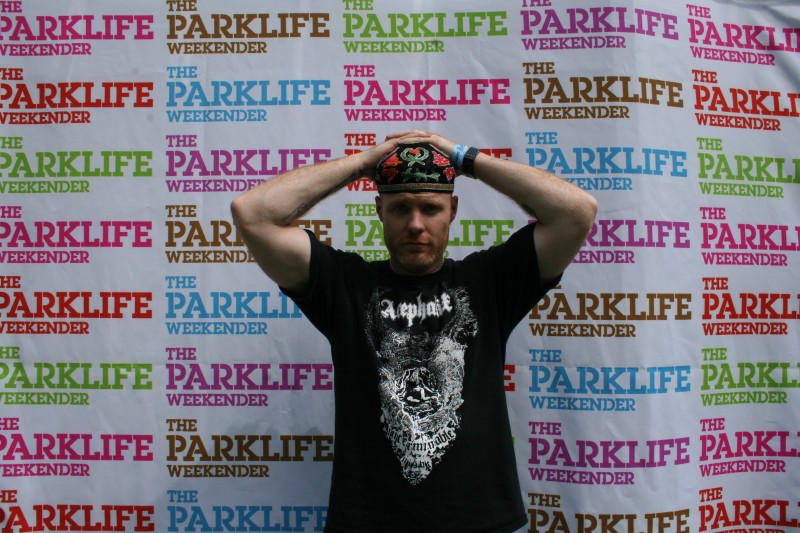Andy Butler of Hercules & Love Affair speaks to FAULT
Where did you first start performing?
It was in Denver Colorado, which is in the middle of the country in the United States. It was a leather bar, a fetish bar, an S&M bar, the kinda place where people dress up in leather and wear dog chains and lead each other round on leashes and whip each other. I was snuck in by a group of probably irresponsible older men, but they let me on the decks. I definitely remember dropping Yazoo’s Situation and I still drop that track in my sets today.
Surely being exposed to that kind of environment aged fifteen, enrolling at Sarah Lawrence College, Brooklyn, couldn’t have been that much of a shock?
… not at all. It was really weird, I got to Brooklyn and was like “really? This is New York?” It’s so boring!” I was so bored by New York by the time I got there. By seventeen I’d felt like, God, I’d done so much. All my partying had happened pre-New York, in my teens in Denver Colorado… And it’s a testament to the moment, when Rudy Giuliani was making night clubs an impossibility: he was turning Cabaret laws really harsh, wasn’t letting people open clubs, everything was turning into a lounge so there was no dancing, it was a very different New York to what I’d anticipated. I moved to New York and it was dying. It might be picking up a little bit, but it’s still what it is, it’s not an island of crazy creative people like everyone romanticizes it to be…
You seem quite disillusioned…
Yeah, it’s an island of commerce, a place to buy and to sell.
The description of Kim Ann’s club-night intrigued me, a debauched dive called The Hole… Could you tell us a little about those days?
Yeah, that was cool. Kim Ann approached me, she was a San Francisco girl coming from a totally different culture, but we were of the same mindset. She knew the kind of music and the vibe that I was into and she wanted me to be the resident DJ at her night. That was a lesbian night, so she had a gay boy DJing at a lesbian night, which meant that I brought all these gay boys to a lesbian night which made it really mixed, which then brought a lot of straight people because they felt comfortable. All of a sudden I had all these old New York legends who would come up to Kim Ann and I and say “We haven’t been to a party like this in NY since The Pyramid or Studio 54 in its heyday”, where it was so mixed, about every gender, about transgender, about pan-sexuality, about just freakiness, everything you know, and the music was primo. We really achieved something special.
I understand your initial intention with Hercules & Love Affair was to accumulate a collective in which cast members are rotated. Why had you felt this approach would be the more appropriate?
I was writing piano music on the keyboard since the age of eleven, but I never had this notion of a proper band in mind, I never grew up with that model. I was just always a songwriter.
It was all about writing songs and having my friends help me realise those songs, it wasn’t about anything other than writing music, that’s all I do, that’s all I’ve done since I was a kid. I had all of these talented people around me, why not invite them to participate? Not as any sort of commitment, it was just all about the music.
Blind is an exceptional start to a career! In what ways would you say you have developed as a songwriter since?
It was an interesting year for me. I was writing my first film-score, using orchestral instruments: a cello, a violin, a clarinet… delving back into my University studies during that time. I had studied minimalist composition under Philip Glass’ conductor and main piano player.
Writing classical music is totally distinct from writing pop music. Though I was embedded with pretty strict rules and a certain amount of theory that I still apply to my work, it’s nothing like classical composition. There are things you can do with classical music that you just cant do with the pop song, people want a template and that’s it!
Why did you opt to record Blue Songs with Patrick Pulsinger and how did this impact the sound?
If you look at his history, he moved from writing seminal classic techno during the early 90s for labels like R&S, which is a Belgian techno label, before then starting to record jazz, engaging with those musicians. That’s why I chose Patrick, he’s got a very open-minded approach towards dance music and its represented in everything he does. He’s interested in improvisation and a lot more than just your straightforward 909 techno beat.
I thought the video for My House was brilliant, an impeccable likeness to a time warp. However in reading reviews I imagined it becoming quite tedious constantly being likened to a 80s disco revival, yet the video seems to play into that assumption. What are your thoughts?
I don’t write music for critics, or journalists, or fans even. I write devotional songs to people like my mother, or to people I love. The point of that video was like “y’all forgot about this and y’all need to remember this!” because there is a lack of sophistication, a lack of subtlety, a lack of soul and that’s the biggest thing. There is a lack of diversity, community and it’s not about minimal techno and its not about maximal overblown gross production like Lady Gaga and David Guetta, I’m sorry, its about the right vibe, deep house, soulful, beautiful music. That’s how it is.
